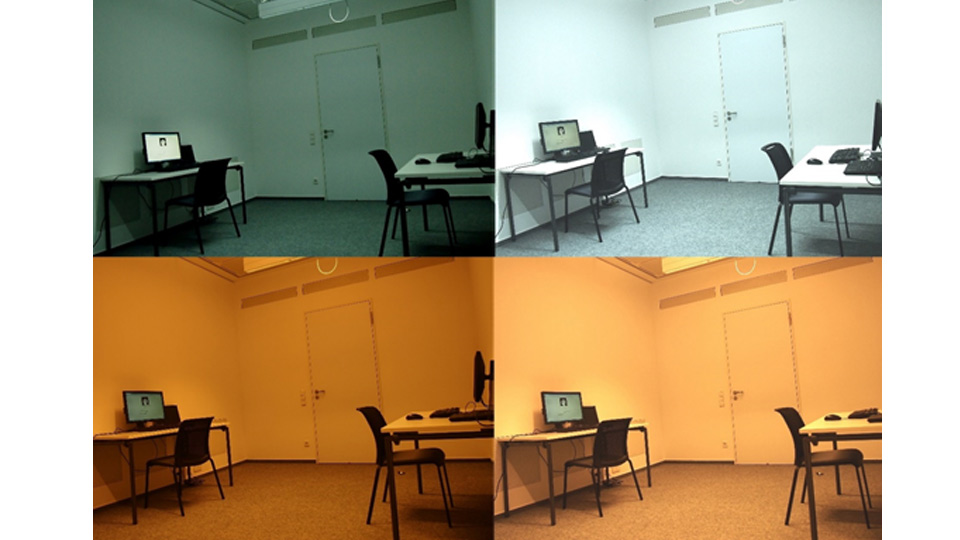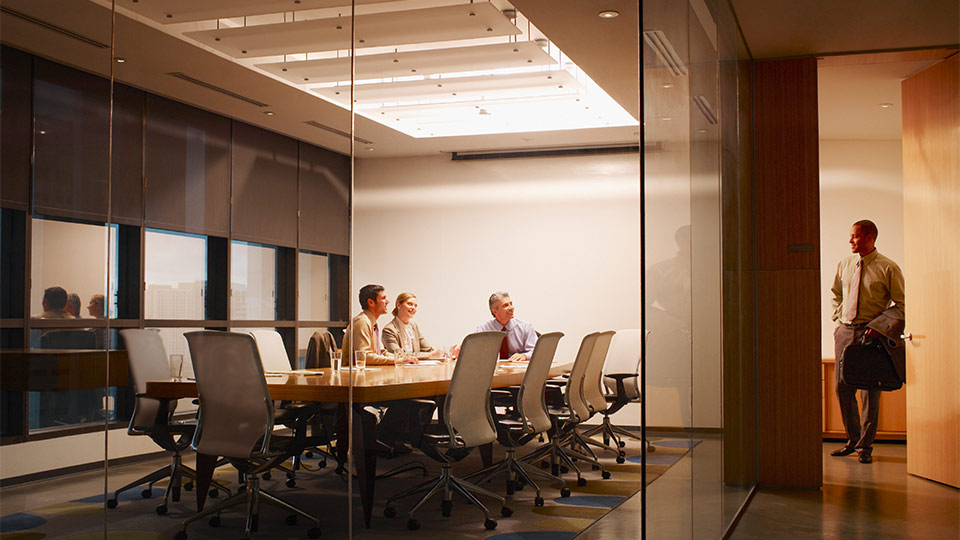7 Aug 2019
You’re more likely to be deemed friendly and competent in a job interview if those asking the questions are happy with the light in the room, study finds
The more satisfied office workers are with the light in a room, the more likely they are to deem people they have just met as being warm and competent, a new Loughborough University study has found.
Workplace illumination is known to impact mood, performance and decision-making. However, until now little research has examined whether light satisfaction can impact first impressions in a work context.
The topic is important as it means situations such as hiring, leader selection, voting decisions, performance appraisals and social interactions that are influenced by first impressions may all be impacted by the light conditions in a room.
Dr Olga Kombeiz and Dr Erik Dietl, experts in human resource management and organisational behaviour in the School of Business and Economics, hope their latest research findings will contribute to the design of better and fairer work settings in which first impressions are made.
The pair’s latest research paper explores how positive feelings associated with lighting conditions in offices relates to judgements of others’ warmth – how friendly and trustworthy someone is deemed to be – and competence, which is characterized by intelligence, confidence, and assertiveness.
They addressed the idea by conducting two studies: a laboratory experiment and a field study in real working offices.
Both studies required participants to look at photos of male and female faces with neutral expressions and rate their level of warmth and competence.
Results from a pilot study showed the images to possess 'medium levels' of attractiveness, warmth and competence.
One-hundred-and-sixty-one German university students took part in the first study, which was hosted in a laboratory designed to represent an office, and the second field study involved 175 full-time employees in the United States.
All participants were asked to rate the faces in the photos in terms of their perceived warmth and competence and rate how satisfied they were with the light in the office.
Lights of different brightness and colour temperatures were used during the experiments as the light settings considered to be the best or most satisfying to an individual is down to personal taste.
By using a variety of light conditions, the researchers hoped to elicit a broad range of satisfaction with light responses.

Different lighting conditions used in the laboratory study.
Dr Kombeiz and Dr Dietl found in both studies that the more satisfied participants were with the light in the office, the more likely they were to deem the faces in the photos as warm and competent.
They found the same pattern of results in the German laboratory experiment and the US field study, which they say demonstrates, at least in Western Culture, that the satisfaction with light appears to be related to positive judgements of other people.
Dr Kombeiz commented: “Person perception and the evaluation of others in work contexts are very important. The first impressions that we have about other people can impact judgements and decisions.
“First impressions occur automatically and at least partly subconsciously and may be influenced by factors such as light in the office.
“Our research contributes to the understanding of how affective processes - satisfaction with light - relate to judgements of others.
“From a practical point of view, this has implications for the design of settings involving the evaluation of other individuals.
“For example, in order to avoid unfair or biased judgements of job applicants, the lighting conditions during a job interview should be the same across all applicants and/or decision-makers should be able to adjust the lighting conditions so that they are satisfied with them.”
She added: “This research underlines the importance of subjective appraisals of our environment. In addition to light, we intend to take a more holistic approach by examining other features of the workplace.”
The full paper, titled ‘Light as a positive situational cue at work: Satisfaction with light relates to judgements of other's warmth and competence’, can be found here.















